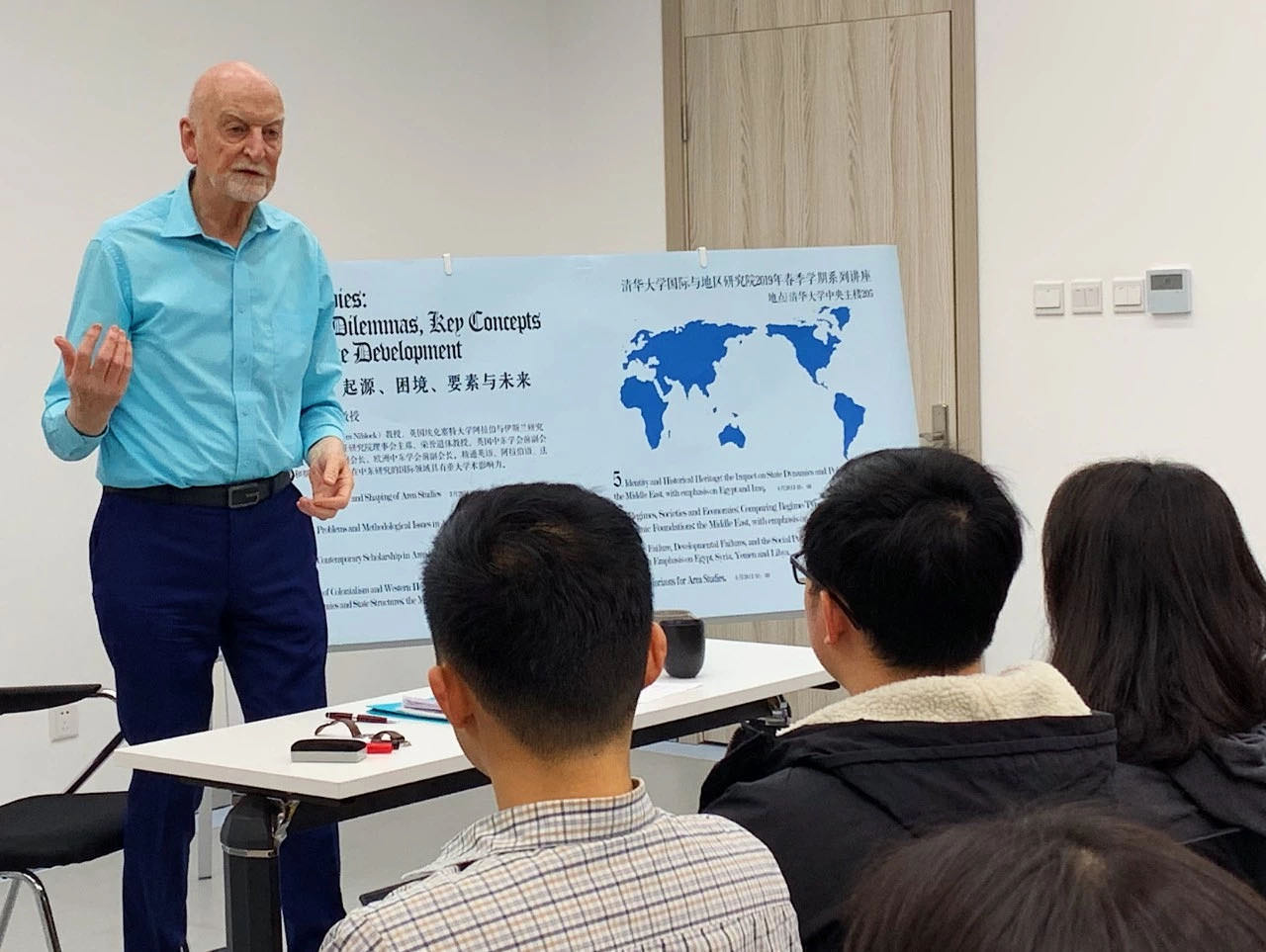
Area Studies: Origins, Dilemmas, Key Concepts and Future Development: Lecture 1 | Prof. Tim Niblock

On the morning of March 29, 2019, Prof. Tim Niblock, Member of Faculty Council at the Institute of International and Area Studies (IIAS) of Tsinghua University and Professor Emeritus of the University of Exeter, brought his latest findings on area studies to more than 20 doctoral students of IIAS at Conference Room 205 of the Central Main Building of Tsinghua University. It was also the first session of a series of lectures on “Area Studies: Origins, Dilemmas, Key Concepts and Future Development” delivered by Prof. Niblock.
In the lecture, Prof. Niblock clarified the academic concept of area studies and introduced the academic development of area studies in the past century based on historical facts. He believed that during the Second World War, the motivation of Western countries trying to strengthen the control of colonies greatly drove the academic development of area studies at that time. Regarding the significance of area studies, Prof. Niblock mentioned that area studies can help us understand compatriots from different cultural backgrounds, races and regions. It can also be used to help people in the studied area.
During the Q&A session, Prof. Niblock shared his personal academic choices with doctoral students and listened to their reasons, motivations and stories choosing to enter the field of area studies. Prof. Niblock put forward some “puzzles” worth pondering in area studies, such as the rigor of the definition and division of “areas” and the malicious use of research findings, on which the audience passionately discussed with Prof. Niblock.
Prof. Tim Niblock is the founder and former Dean of the Institute of Arab and Islamic Studies at the University of Exeter. He is currently Chairman of the Institute’s Council and Professor Emeritus. He is also former Vice President of the British Middle East Society, Vice President of the British Regional Studies Society and former Vice President of the European Middle East Society. He is proficient in English, Arabic, French, German and Swahili, and has a significant academic influence in the international field of Middle East studies.
As a senior scholar, Prof. Niblock did not raise profound academic questions at the beginning of the lecture, but asked us the most fundamental questions. We believe that it is equally important to think clearly about why we do area studies and how to use the findings to benefit more local people than learning how to improve academic standards.
By Cheng Yao & Wang Tingyi
Related Content
- Russian Economy and Eurasian Economy Lecture Series: Lecture 5 | Russia’s Economic Growth Model and Resource Dependence
- Russian Economy and Eurasian Economy Lecture Series: Lecture 4 | Russia’s Economic Strength and Social Development
- Russian Economy and Eurasian Economy Lecture Series: Lecture 3 | Russia’s Economic Transformation and Building of Modern Market Economy
- Russian Economy and Eurasian Economy Lecture Series: Lecture 2 | The Relevance of Historical and Cultural Factors to World Economic Analysis: A Case Study on the Economy of Russia and Ukraine Before and After the Conflict

